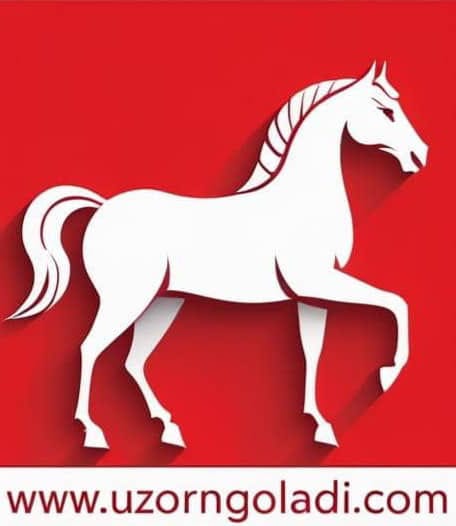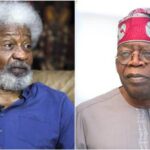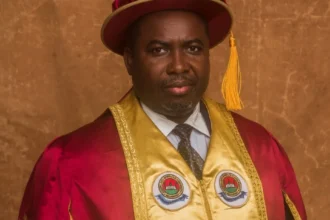
Anambra State Governor, Professor Chukwuma Charles Soludo, has clarified the conditions under which his administration could consider granting clemency to prominent native doctors currently standing trial in the state.
The traditional spiritualists, including Chigozie Nwangu, widely known as Akwa Okuko Tiwara Aki from Oba, Eke Hit from Okija, and Onyeze Jesus from Nkpor, were arrested earlier in February over allegations ranging from aiding criminal activities to misleading young people with fraudulent wealth-generating schemes.
Security agencies had accused the men of administering charms and rituals for suspected criminals, deceiving impressionable youths into believing that wealth could be acquired through mystical shortcuts rather than through legitimate hard work. Their arrest generated wide reactions across communities in Anambra, with some residents applauding the crackdown while others argued that the traditionalists had cultural roles to play in their localities.
Appeals from the Community
During a recent visit to Oba in Idemili South Local Government Area, the hometown of Nwangu, Governor Soludo was greeted by hundreds of local youths. Many of them passionately appealed for the release of the detained spiritualist, describing him as an important cultural figure and community benefactor.
In their appeals, the youths stressed that Akwa Okuko had contributed to the development of the community through philanthropy and employment opportunities. They urged the Governor to exercise his influence to secure the release of their kinsman.
Governor Soludo’s Response
Responding to the appeals, Governor Soludo acknowledged the sentiments of the community but firmly reminded them that the matter had passed beyond his direct control.
“You are asking for the release of Akwa Okuko,” the Governor said. “But I want to say that there is a process. There is a process for me to follow, and there is also a process for the court to follow. Where we are now is the process of the court.”
Soludo explained that the matter is presently in the hands of the judiciary, and as such, any intervention must await the conclusion of legal proceedings. He noted that the government cannot be seen to undermine the rule of law or interfere arbitrarily in ongoing trials.
“The only path forward is to pray for a speedy trial,” he added. “Once the courts have reached their conclusion, and if they are convicted, then community leaders can approach me formally to request clemency. Until that point, my hands are tied.”
Rule of Law and Due Process
The Governor stressed that his administration is firmly committed to upholding the rule of law. According to him, allowing judicial processes to run their course is essential not just for the present case but also for strengthening the integrity of governance in Anambra State.
“We are building a society where the law governs all of us equally,” Soludo stated. “Nobody is above the law. If you are accused, you will face trial. If you are innocent, you will be discharged. If guilty, you will face the consequences. Only after that can we begin to talk about pardon or clemency.”
Soludo also highlighted that granting pardons is a serious constitutional responsibility that cannot be exercised arbitrarily. He reminded the people that any such action must be backed by legal and procedural considerations.
Larger Implications
The arrests of the three native doctors have stirred wider debates in Anambra and beyond. While some view the clampdown as a long-overdue move against exploitative practices that mislead youths, others interpret it as a cultural affront to traditional institutions.
Analysts argue that the outcome of the trials could set an important precedent in the state’s efforts to regulate harmful practices associated with fetishism, ritualism, and fraudulent wealth-seeking schemes.
The case also underscores the tension between cultural traditions and modern state laws. While native doctors have historically played spiritual and communal roles in Igbo society, their activities in recent years have increasingly drawn scrutiny amid concerns over ritual killings, advance-fee fraud, and youth radicalization.
The Road Ahead
For now, the detained native doctors remain in custody as their trials proceed in court. Governor Soludo has maintained that the judiciary must be allowed to determine their fate.
Community members, especially in Oba, Okija, and Nkpor, continue to push for their release, but the Governor has urged them to channel their appeals within the framework of the law.
Ultimately, Soludo’s position reflects a broader attempt to strike a balance between respecting cultural sentiments and enforcing the rule of law. His stance sends a clear message that while tradition may have its place, the authority of the state and the supremacy of the law cannot be compromised.
As the trials progress, public attention will remain focused on the judicial outcome and whether, at the end of the process, the Governor will be petitioned to exercise his powers of clemency. Until then, the matter rests squarely in the courts, with the eyes of Anambra and the entire nation watching closely.






